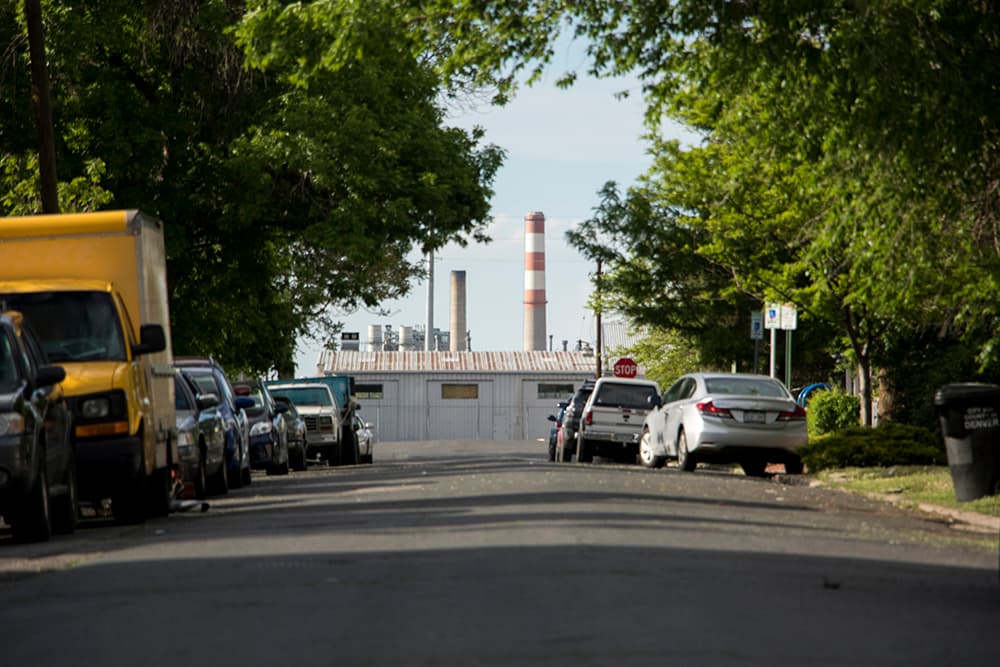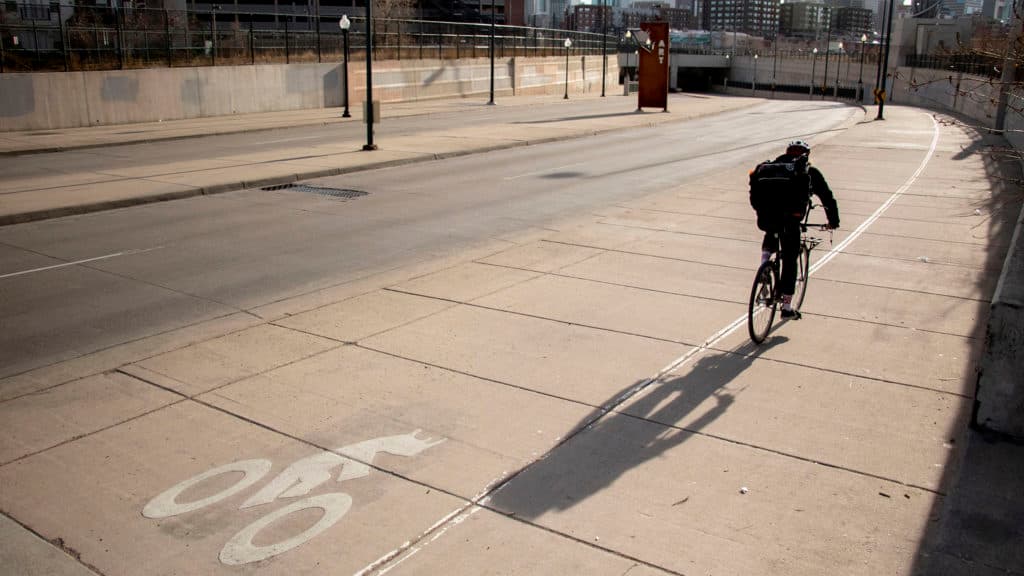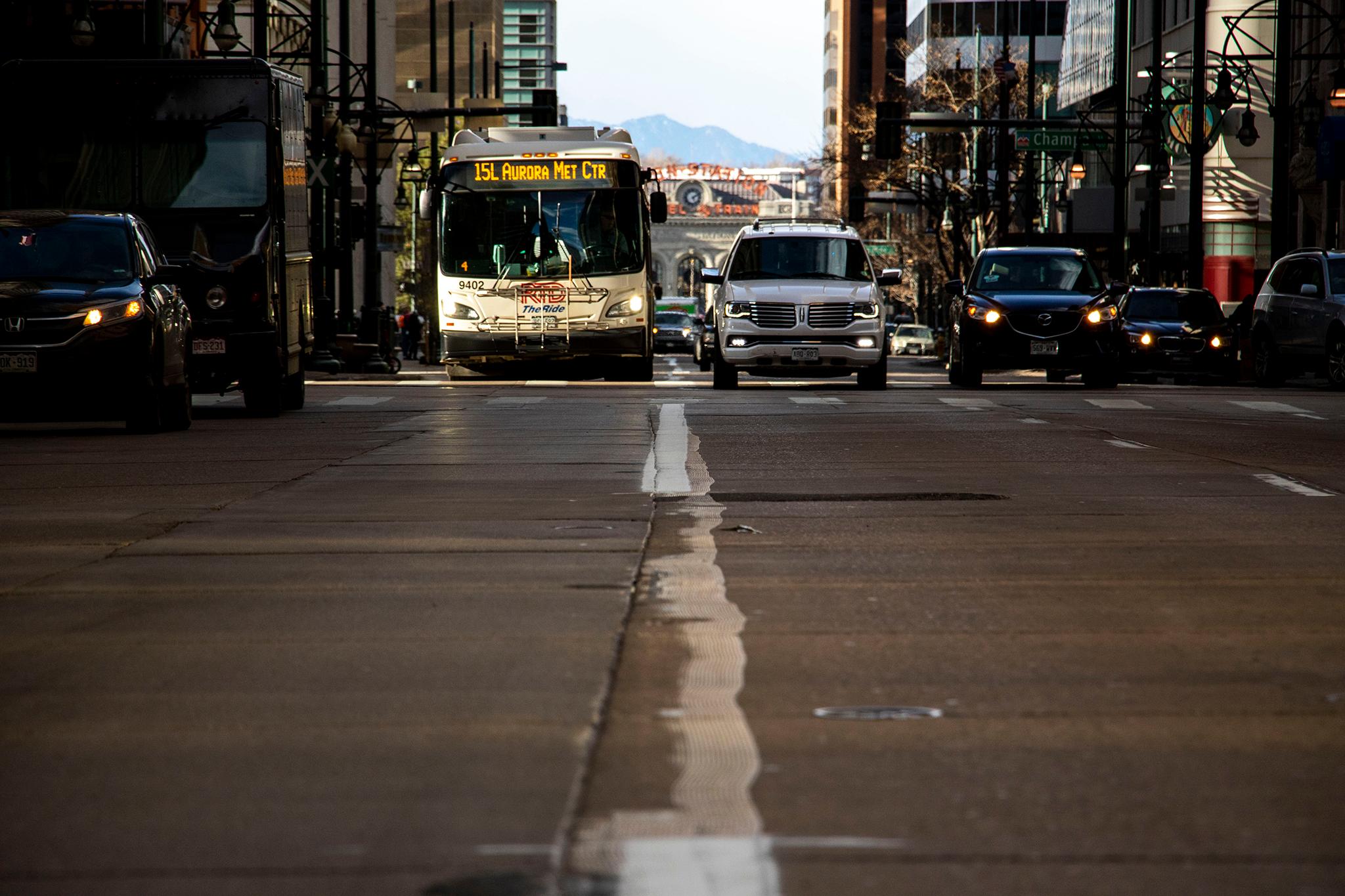Life in Denver could look a lot different if the city follows a set of recommendations released Tuesday by a city-appointed Climate Action Task Force.
In a lengthy report, the group, which consists of representatives from energy, business, conservation, neighborhood, education and other interests, urged "immediate and decisive action to reduce our impact and prepare for climate change."
Among the group's top priorities:
- A retrofit of existing homes and buildings to support energy efficiency, and stricter requirements for new buildings
- An expanded bus system that is more affordable and fully electric
- A reconfiguration of city streets to give more space to buses, cyclists, and in commercial areas, food vendors
- An investment in electric vehicle infrastructure
- An end to the use of natural gas for heating and cooking as much as possible
The recommendations are the result of months of meetings among Denver citizens appointed to the Climate Action Task Force. Mayor Michael Hancock agreed to form the group and launch a new climate office after Denver Council President Jolon Clark dropped an effort to put an energy tax on the 2019 ballot.
"It's huge," Clark said of the report. "I think that it's an extraordinarily heavy lift, but I think that anything less is a failure. The scale of the problem that we're facing and the reality of how that is going to impact people in our community we're seeing play out right now with this pandemic."
Some of the recommendations echo earlier planning documents, like Denver Moves and Blueprint Denver. This set of proposals would likely be implemented piece by piece, and would require action by the City Council and other political entities including the state legislature and the Regional Transportation District board.
They would cost nearly $200 million each year and $3.4 billion over the next decade. The task force recommended a quarter-cent sales tax hike and a slate of new fees on parking and personal vehicles to cover the cost.
A City Council committee will discuss the report next week, where Clark said he will also present a draft motion for the council to refer that sales tax measure to the ballot.
A different funding mechanism is already on the November ballot. Resilient Denver, a citizen advocacy organization, had planned to place the proposal on last year's city ballot but missed a key deadline. Its plan would ask voters to approve a tax on electricity and natural gas consumption, but the group could be willing to pull the initiative in favor of a sales tax.

"We will determine that when we see a sales tax on the ballot," said Resilient Denver spokesperson Ean Thomas Tafoya. "Right now, it's just a recommendation."
While the task force acknowledges their recommendations amount to a "significant investment," their report suggests the plan could save Denver citizens billions in the long run. The policies could blunt the most expensive impacts of climate change. The recommendations could also move the city to technologies like electric buses, which are more expensive to purchase than fossil fuel-powered versions but cheaper to maintain.
"Every dollar we spend in prevention and preparedness now will save many dollars in the future," the report's authors wrote.
The overarching goal of the task force to suggest policies to put Denver on a much more ambitious plan to reduce greenhouse gas emissions. Under the city's current 80×50 Climate Action Plan from 2018, Denver would need to reduce emissions 80 percent below 2005 baseline levels by 2050. The new plan aims to eliminate all emissions by 2040.
Grace Rink, executive director of Denver's Office of Climate Action, Sustainability and Resiliency, said the city would still need to review the plan before adopting the new goals, but said the more ambitious targets fit with the growing urgency of climate change. UN climate scientists have recommended humanity move to net-zero emissions by 2050, with even faster declines in industrialized countries.
"The task force has made it clear the city of Denver should align its climate goals to current science. Although the 80×50 climate goals were right at the time, so much has evolved on the subject," said Rink.
The authors also say the investments will help address the city's history of racist planning practices by implementing more equitable land use policies. The coronavirus pandemic and climate change will both disproportionately affect the city's low-income and minority communities, they wrote.
"We have an opportunity to build Denver back better by interlacing the recovery across our current economic, racial justice, and climate crises," they wrote.
Sebastian Andrews, an 18-year-old who also sat on the task force, said the report outlines a more "collective" city, where people understand they share space and resources. The result, he said, isn't just a necessary response to climate change. It could be an altogether more livable city.
"With this plan, Denver can be an actual model nationally and internationally for solid and effective climate action," he said. "This task force process has given us a chance to be the leader."
The report recommends significant changes to land use policies, favoring density over sprawl. That could mean relatively low-impact measures like allowing granny flats in more areas or more significant changes like lifting single-unit zoning restrictions across the city and eliminating parking requirements for new buildings. The overall goal is to reduce the need to travel for everyday needs.
The group also recommended big changes to how people travel.
If fully realized, the changes would result in a dramatic shift away from personal vehicle travel to greater use of transit, bicycles, and yes, your feet.
Transportation accounts for 30 percent of greenhouse gas emissions in the city, the report stated. The goal is to achieve a complete emissions-free, affordable and convenient transportation system by 2040.
To achieve that, by 2022, the city would pay the RTD to run buses more frequently with a focus on denser areas in the city. It would plan for a bus rapid transit system, where buses run in dedicated lanes, on "all major corridors" -- a future RTD is already preparing for. Denver would also pay RTD to make transit free for all seniors, passengers with disabilities, Medicare recipients, and youth. The city would also consider making transit free for all riders by 2030.
RTD itself is in the midst of a massive overhaul of its bus network, and it's become clear in recent weeks that major cuts from pre-pandemic service levels are needed across its system. Some board members suggested RTD could provide regional service with local governments either paying extra for local service as this plan suggests for Denver, or operating it themselves.
Buses are far more space-efficient at moving large numbers of people than personal vehicles. And transit-only lanes will help them move a whole lot faster than they do today across most of the city. And some residential streets would be converted to car-free or car-lite zones. But such moves will also result in less space for personal vehicles -- long Denver's favorite method of getting around.

Clark said he expects to hear from frustrated drivers. But he framed the addition of better, faster bus service and more space for bicycles as an increase in mobility options. He also pointed out that because of the city's breakneck growth over the last decade, it's no longer possible to drive across the city in 20 minutes.
"Even if we take the climate conversation out, you can't continue to put more single-occupancy vehicles on our roads," he said. "That commute that everyone dreams of from 10 years ago, or 15 years ago -- it's already gone."
Naomi Amaha with the Denver Streets Partnership sat on the task force. She acknowledged that the group is asking many Denver residents to change their lifestyles. But she noted the coronavirus pandemic has already done that in the last four months.
"There's opportunity to continue to shift, and pivot, and re-evaluate and change the way in which we exist so that we can have the outcomes that we want -- especially knowing that so many people do care about our planet and climate change," Amaha said.















